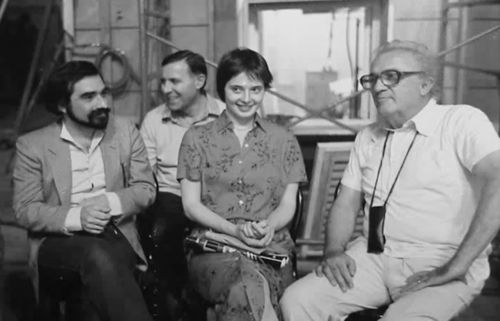With all the discussion of Scorsese's comments about 'Cinema' and streaming, the main point of his article has been greatly overlooked: FEDERICO FELLINI. The entire piece is a wonderful valentine from one master filmmaker to another. The FULL article is here: https://harpers.org/.../il-maestro-federico-fellini.../
Scorsese eloquently examines both how Fellini developed as a filmmaker as well as how the Maestro still influences him to this day. Of particular note is how Scorsese traces his career from Neo-Realism to the more phantasmagorical Director most know him as today.
My great film schools Professors indulged me in my passion for linking Fellini's Neo-Realist screenplays (including Rossellini's PAISAN and ROME OPEN CITY) to his later work. I have always thought that DE-linking his early period (which also included his own film LA STRADA and I VITELLONI) from his more elaborate later films was too neat a break. To me, Fellini was still exploring the human spirit, but, his later work expanded from dreary day to day life to a person's inner dreams, illusions and psyche. Humans are as much about the subconscious as the conscious - the rational and irrational.
It's a great article. Please read it in full. Grazie, Martin.
Photo: Scorsese, Isabella Rossellini, Fellini.
Not sure who the fourth person is - ID anyone?
Scorsese eloquently examines both how Fellini developed as a filmmaker as well as how the Maestro still influences him to this day. Of particular note is how Scorsese traces his career from Neo-Realism to the more phantasmagorical Director most know him as today.
My great film schools Professors indulged me in my passion for linking Fellini's Neo-Realist screenplays (including Rossellini's PAISAN and ROME OPEN CITY) to his later work. I have always thought that DE-linking his early period (which also included his own film LA STRADA and I VITELLONI) from his more elaborate later films was too neat a break. To me, Fellini was still exploring the human spirit, but, his later work expanded from dreary day to day life to a person's inner dreams, illusions and psyche. Humans are as much about the subconscious as the conscious - the rational and irrational.
It's a great article. Please read it in full. Grazie, Martin.
Photo: Scorsese, Isabella Rossellini, Fellini.
Not sure who the fourth person is - ID anyone?






